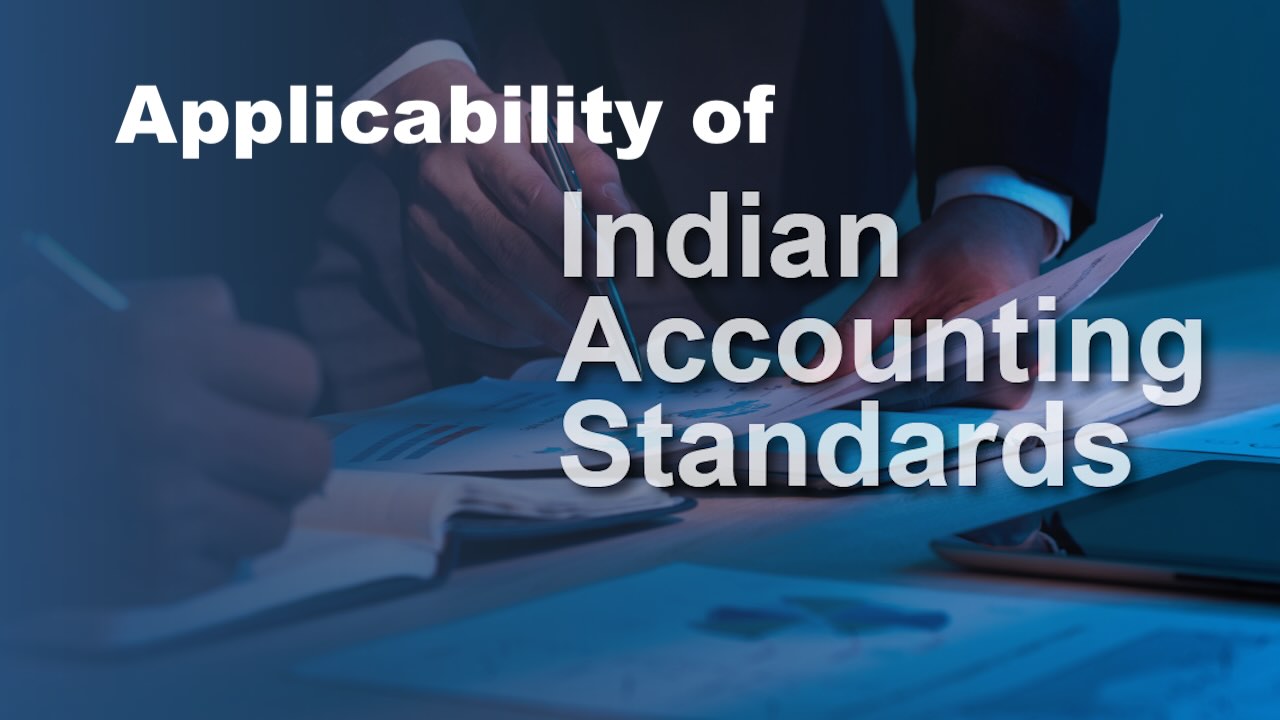Applicability of Accounting standards: The accounting standards aim at improving the quality of financial reporting by promoting comparability, consistency, and transparency, in the interests of users of financial statements.
If you like this article then please like us on Facebook so that you can get our updates in the future ……… and subscribe to our mailing list ” freely “
Quick Links
Status of Accounting Standards
It has already been mentioned that the Accounting Standards are developed by the Accounting Standards Board (ASB) of the Institute of Chartered Accountants of India and are issued under the authority of its Council. The Institute not being a legislative body can enforce compliance with its standards only by its members. Also, the standards cannot override laws and local regulations. The Accounting Standards are nevertheless made mandatory from the dates specified in respective standards and are generally applicable to all enterprises, subject to certain exception.
The implication of the mandatory status of an Accounting Standard depends on whether the statute governing the enterprise concerned requires compliance with the Accounting Standards. The Companies Act had earlier notified 28 accounting standards and mandated the corporate entities to comply with the provisions stated therein. However, in 2016 the MCA has withdrawn AS 6. Hence, effectively there are now only 27 notified Accounting Standards as per the Companies (Accounting Standards) Rules, 2006 (as amended in 2016).
Applicability of Accounting standards
Hello everyone…Here in this article, I’m going to discuss a few lines about the applicability of accounting standards…
First of all we should know the classification of non-corporate entities as decided by ICAI.
Enterprises to which the accounting standards apply?
Accounting Standards apply in respect of any enterprise (whether organised in corporate, co-operative or other forms) engaged in commercial, industrial or business activities, whether or not profit oriented and even if established for charitable or religious purposes. Accounting Standards, however, do not apply to enterprises solely carrying on activities, that are not of a commercial, industrial or business nature, (e.g., an activity of collecting donations and giving them to flood-affected people).
Exclusion of an enterprise from the applicability of the Accounting Standards would be permissible only if no part of the activity of such enterprise is commercial, industrial or business in nature. Even if a very small proportion of the activities of an enterprise were considered to be commercial, industrial or business in nature, the Accounting Standards would apply to all its activities including those, which are not commercial, industrial or business in nature. Must Check Bank Holidays in India.
Level-1 entities:
Non corporate entities which fall in any one of the following categories at the end of the relevant accounting year are called as level-1 entities:
- Entities whose equity or debt securities are listed or in the process of listing with any stock exchange whether in India or abroad.
- Banks, financial institutions, or entities carrying in the insurance business
- All commercial, industrial, and business reporting entities whose turnover is greater than 50 crores in the immediately preceding accounting period. Here other income is to be ignored in the calculation of turnover.
- All commercial, industrial, and business reporting entities whose borrowings including public deposits in excess of 10 crores at any time during the immediately preceding accounting year.
- Subsidiary or holding entities of any of the above. You may also like Various Terms of Banking.
Level-2 entities:
Non corporate entities which are not covered in any of the above categories and fall any one of the following categories are level-2 entities.
- All industrial, commercial, and business reporting entities whose turnover exceeds rupees 10 crores but doesn’t exceed rupees 50 crores in the immediately preceding accounting year.
- All commercial, industrial and business reporting entities whose borrowings including public deposits are above 1 crore but don’t exceed 10 crores at any time during the immediately preceding accounting year.
- Holding and subsidiary entities of any one of the above.
Level-3 entities:
Non corporate entities that are not covered under Level 1 and Level 2 are considered Level 3 entities.
Applicability of AS:
| AS NO. | Applicability |
| AS-1 | All entities |
| AS-2 | All entities |
| AS-3 | Level-1 |
| AS-4 | All entities |
| AS-5 | All entities |
| AS-6 | All entities |
| AS-7 | All entities |
| AS-8 | Not in existence |
| AS-9 | All entities |
| AS-10 | All entities |
| AS-11 | All entities |
| AS-12 | All entities |
| AS-13 | All entities |
| AS-14 | All entities |
| AS-15 | All entities |
| AS-16 | All entities |
| AS-17 | Level-1 |
| AS-18 | Level-1and2/all companies |
| AS-19 | All entities |
| AS-20 | Level-1, All companies |
| AS-21 | see # |
| AS-22 | All entities |
| AS-23 | see # |
| AS-24 | Level-1and2/ All companies |
| AS-25 | Level-1 and any entity which is required to prepare interim financial report |
| AS-26 | All entities |
| AS-27 | see # |
| AS-28 | All entities |
| AS-29 | All entities |
| AS-30 | Level-1 |
| AS-31 | Level-1 |
| AS-32 | Level-1 |
#….As-21,23 and 27 are mandatory to those entities which require to prepare and present consolidated financial statements.







